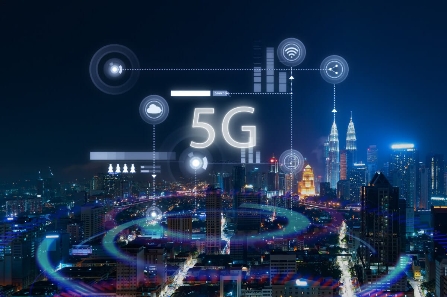
5G technology offers numerous applications across various sectors, driving innovation and efficiency. Here are some key sectors and how they benefit from 5G:
Healthcare – Telemedicine: High-quality video consultations and remote diagnosis become feasible, improving access to healthcare.









Remote Patient Monitoring: Wearable devices can collect and transmit patient data in real-time, allowing for better management of chronic diseases.
Robotic Surgery: Enhanced connectivity allows for precision in remote surgical procedures.
Transportation and Logistics:
Autonomous Vehicles: Real-time data communication between vehicles and infrastructure improves safety and navigation.
Fleet Management: Enhanced tracking and monitoring of vehicles lead to better logistics and reduced operational costs.
Traffic Management: Smart traffic lights and real-time updates can reduce congestion and enhance urban mobility.
Manufacturing:
Smart Factories: 5G enables connected machines and IoT devices to optimize production processes and maintenance.
Augmented Reality (AR) for Training: AR applications can assist in training workers on complicated machinery in real-time.
Supply Chain Management: Real-time data exchange improves inventory management and supply chain efficiency.
Entertainment and Media:
Immersive Experiences: Enhanced VR and AR applications for gaming, concerts, and other entertainment activities become smoother and more interactive.
High-Quality Streaming: Live streaming of events in high definition becomes seamless and available to a wider audience.
Content Delivery: Faster content updates and downloads for mobile devices improve user satisfaction.
Smart Cities:
IoT Sensors: 5G supports the connectivity needed for numerous sensors and devices that monitor urban infrastructure (e.g., waste management, water supply).
Public Safety: Real-time data sharing can improve emergency response systems and surveillance.
Energy Management: Smart grids can optimize energy distribution and consumption patterns.
Agriculture:
Precision Farming: Real-time data from sensors can optimize irrigation, fertilization, and harvesting processes, enhancing yield and resource management.
Drone Technology: Drones can be used for monitoring crops and livestock, with 5G enabling quick data transmission and analysis.
Supply Chain Optimization: 5G helps streamline logistics for transporting agricultural products.
Retail:
In-Store Experience: Enhanced mobile connections can improve customer engagement through AR, providing information or promotions via apps.
Inventory Management: Real-time inventory tracking systems help optimize supply chains and reduce waste.
Contactless Payments: Faster transaction processing leads to improved customer satisfaction.
Energy:
Smart Grids: 5G facilitates real-time communication in energy networks, improving efficiency and reliability.
Renewable Energy Management: Better integration and management of renewable energy sources.
Predictive Maintenance: Enhancements in monitoring and diagnostics for energy infrastructure.
Financial Services:
Mobile Banking: Faster, more secure processing of transactions and data analysis for personalized financial services.
Blockchain Applications: Improved connectivity for blockchain technologies enhances the speed and security of financial transactions.
Fraud Detection: Real-time data analysis can help in identifying and preventing fraudulent activities quickly.
Education:
Remote Learning: Enhanced video conferencing capabilities for better online learning experiences.
Interactive Learning Tools: Using AR and VR in classrooms becomes more feasible with low-latency connections.
Global Collaborations: Facilitating international partnerships and projects in educational settings.
Overall, 5G’s high speed, low latency, and increased capacity are instrumental in transforming various sectors, driving digital transformation, and enhancing operational efficiencies.


Leave a Reply